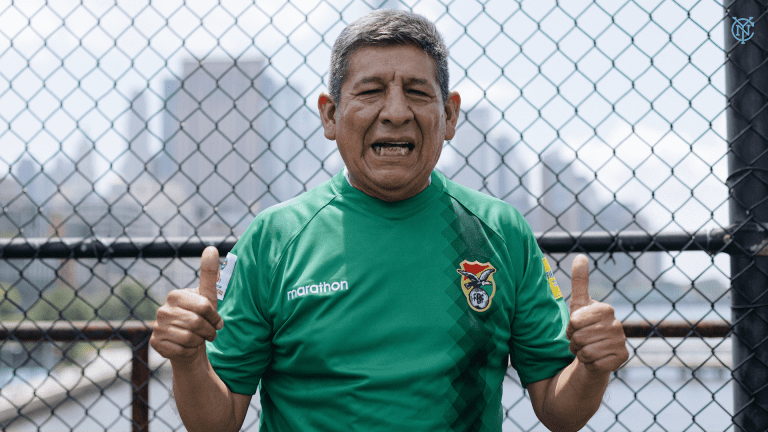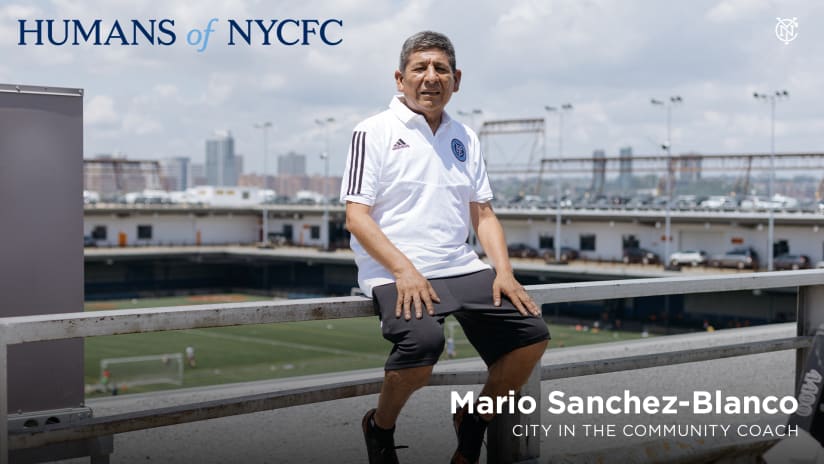When 13-year-old Mario Sanchez-Blanco left the family home in search of his dad, he had no idea where his venture would lead.
With only two names – that of his father and the city he lived in – Mario stepped out of the front door in La Paz, Bolivia, and embarked on a remarkable adventure that would eventually transport him to New York City: the place he now calls home.
Throughout that journey, there remained one constant in his life: soccer – the beautiful game that unlocked countless doors. From a serendipitous encounter with Diego Maradona’s Argentina youth team, to a new life in the United States, and ultimately, his current coaching role with City in the Community, it has been a truly incredible story…
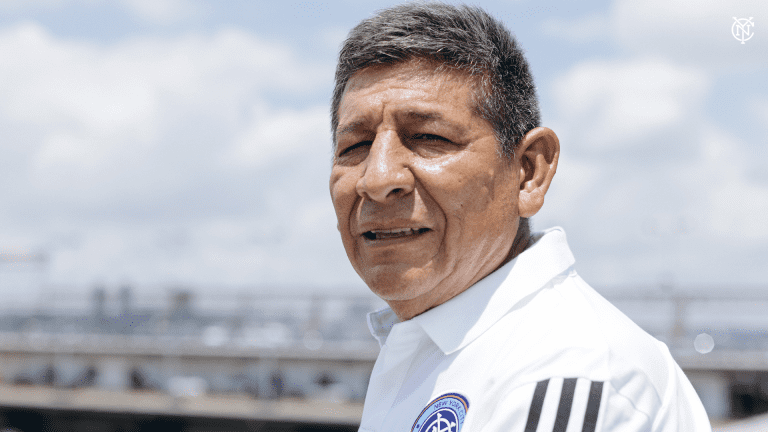
Mario, tell us about yourself…
I started playing soccer very early in my age. I had a tough childhood. My father left when I was three years old. Basically, my main history is that when I was 13 years old, I was missing P.E. because I didn’t have sneakers. My mom said: ‘Why don’t you go and ask your father?’ I don’t know what came over me, but I picked up a backpack, and I was going out. My mom said: ‘Where are you going?’ and I said: ‘I’m going to look for my father.’
My father lived in a different city of La Paz in Bolivia. I got on a bus, and I went to the other city, which is called Santa Cruz. I looked for my father for a little while – he has the same name as mine – but there were many people called Mario Sanchez, so I gave up. I was sleeping in the park, and I was going to go back home, but then I saw a little soccer field where some kids were having practice. I was just watching, but when came back the next day, they invited me to play. I started playing with them, and I had a great time. One of the kids said: ‘Where do you live?’ I explained I live in La Paz but was looking for my father. He took me home to his house for a day or two.
The soccer team was sponsored by the parents, and they had a tournament they were going to play in Argentina. They asked me to go. I was not the best player, but I could play any position: goalie, defense, attack, whatever I needed to do! When it came time to do the paperwork to get tickets, we realized we didn’t have permission from my parents. This is a crazy part of my life… I still went out to Argentina to play! We played for two days, and there was this boy who became very famous: Diego Maradona. We played against each other!
Of course, then you never knew this kid would become one of the greatest players in our sport – so many kids in Argentina are very good players with this style – but he was a very good player. That was a great part of my life story!
What happened when you returned home?
When I got back home, my mom was not happy! She was asking how I got out of the country, and who were the people I had been with… But they were very influential people, and when I went back home, they gave me a good job, so my mom didn’t have problems.
I finished High School, and I started working in a bank as a messenger. I was playing in the soccer team for the bank, and when I was about 20, I met someone who was recruiting players in the USA. I went for some scholarship trials, but when I came to try out in the mid-80s, the players in college were like American Football players – huge guys! I was half the size of them – skinny and short – but I had good speed.
In one of the practices, I broke my leg. I spent three months in hospital, and they told me I had to pay for the scholarship… I had no money, so I almost went back home – I thought maybe I could play in the First Division in Bolivia – but I have family here and they encouraged me to stay. Unfortunately, I couldn’t go to college, but I started working in every little thing I could do in my first three, four years, and I started to play soccer again when my leg was okay.
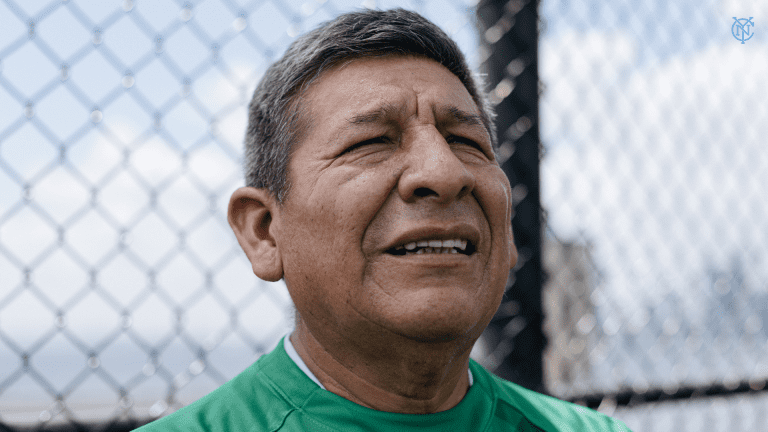
How did you become involved in coaching?
In New York, Flushing Park in Queens was the main place to play soccer, and I played for a team from Ecuador. In the early days, soccer was not popular so on my vacation, the first thing I did was get my license as a coach. Coaching School was incredible. I had a great experience, and I had a warm welcome because I had a good knowledge and passion for soccer. They invited me to work in summer camps, and I did that in my vacation time every year.
I got a good job as a Bookkeeper. I had worked for a popular restaurant called the 21 Club, using the skills I learned at the bank in Bolivia, and then got a job at a hotel, where I worked for 15 years. I had done work for different businesses through a cousin who was a Financial Advisor, and learned about the system in America to become a Controller.
In the meantime, I did a little coaching after work for a few hours, with games at the weekends. The hotel allowed me to start working a coaching job in a High School from September to November – I would go to the hotel at 6am, then go to the school at 2pm and do coaching there.
I started working with different clubs in New York City with different age groups, like Asphalt Green on the Upper East Side. In 2012, the hotel was sold to another company, and I decided to pursue my career in soccer, working as a P.E. teacher to cover maternity leave. I worked at Nightingale, and stayed there for 10 years. When I was a child, I’d had two dreams: to be an accountant, and to be a P.E. teacher, and I accomplished them both!
When did you start working with CITC, and what does your role entail?
After those months as a P.E. teacher, I realized I wanted to work with different kids, rather than the same kids five days a week, and I started working with a club called Downtown United Soccer Club. I met Paul Jeffries (CITC Executive Director & Board Member), who hired me as a coach.
He invited me to practice, and I loved it. There were about 40 kids, and I started working with them on a full-time basis, as well as for the private school. Then there was an opportunity to start working with CITC through Paul, and I realized that was what I had been looking for… I used to go to Randalls Island from 9am to 12pm, and coach schools, and I loved their passion.
I started doing more coaching with Paul – in schools, after schools, and I’m now also doing a CITC program called Saturday Night Lights (SNL), which is sponsored by the District Attorneys of New York, to help young people between 10 and 21 years old keep out of trouble, through soccer. I loved their effort and their engagement, and I’ve been acting as the Director of the girls’ side for the last five years. I’m involved in soccer every day! I have a routine – the mornings in the schools, after school, the SNL program, and I still do my Club coaching a few days a week, and the weekends. That’s my life!
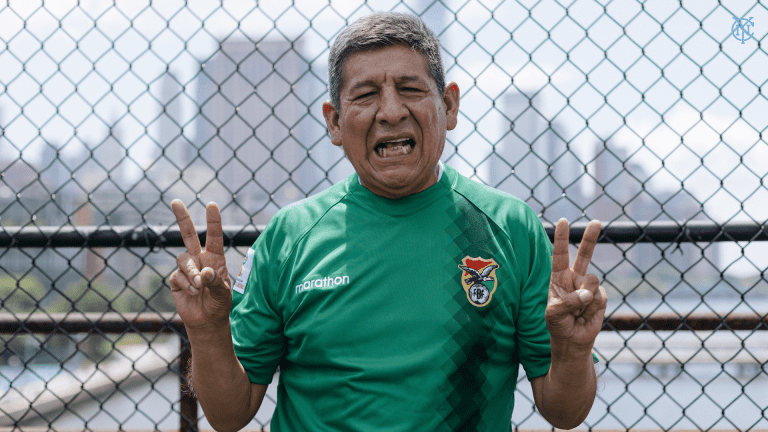
What do you love most about soccer?
That it’s always inclusive, and that you can play anywhere. It doesn’t matter who you are, whether you’re big or small… You can always play soccer. You don’t even need a soccer ball – you can make a soccer ball from socks, plastic, anything… You want a game? Play a game!
Growing up in Bolivia where it was difficult even to get sneakers, I was surrounded by good people, good friends. I had friends who gave me their shoes for me to play on the weekend. I always loved soccer – I even had to work for my mom on the weekdays (she used to sell candy in schools) so I could play soccer on the weekends.
Little by little, I learned that I could be productive – not only playing. When I was 12, 13 years old, I used to referee little kids. Even today, I love to referee – I get involved in any way I can in soccer, though I’m getting old now! I played until around three years ago, but it would take me years to recuperate, so I said: ‘No more!’ and now, I prefer to just be on the side.
Given your experience of soccer helping to open doors into the local community, would you say that is why programs like Saturday Night Lights are so important?
Exactly. Soccer can change the world in little ways… I remember when I came to this country, and soccer was not popular – no-one would pay you to play soccer, everything was volunteer – but it’s becoming popular now. Yet, some kids don’t get the chance to exercise outside of school, or they don’t get the chance to play for a team, or they are from different communities that aren’t known for playing soccer – but they love sport, and they find out that anybody can play soccer at SNL or CITC, which is the great thing about it. Working within the community, the kids appreciate it more, and it makes you want to do more for them.
With New York City Football Club, I go to the games, and I’m able to bring kids to the field, letting them have that experience of being a ballboy or ballgirl, and we provide experiences with workshops in New York City. We do a lot of stuff with CITC. We are going to have the Community Cup again this year. The kids love the games, and having a tournament playing against other schools is a big thing for them. I can’t wait to start!
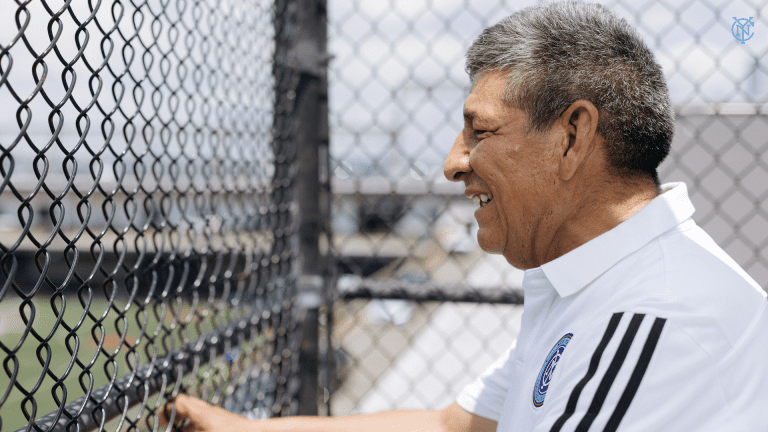
As a role model for young people, how does it make you feel to be able to help them to achieve their dreams, just as you did?
I always feel proud of these things, I feel proud when they accomplish things. Sometimes, I feel like a father to them, trying to push them. I always try to make sure the people coming after me have the same passion. I tell the kids: ‘You have to have a commitment – you can always do things if you have the desire to do it. You want to do something, you have to practice, you have to try.’ I’ve coached kids that have since been promoted to coaching – they were part of the SNL program, and now they are working with us.
I try to be a role model. It’s the best thing: doing something for the community. When these kids say: ‘Thank you, coach,’ it makes you feel good. That happiness from the kids when they see you – ‘It’s Mario!’ – that is why I do what I do. I want to make sure they have a good time, and enjoy the games, and I try to show them that even when things get difficult, there’s always a way to do things...
When I came to this country, I learned that when I didn’t have it, I had to make it happen. I grew up very poor, and when I got to this country, I worked so hard in my first years here. I am good at learning, and I taught myself what I needed to, because nothing is going to be there for you – you have to work for it. I worked hard, I was able to survive. In 1990, I was able to buy a studio apartment in New York City, and I’ve been doing well. I am proud when the kids accomplish things, following our direction.
What are some of your career highlights?
Everything is related to soccer for me! One time, I had the pleasure to meet Pelé. Around ten years ago, I was coaching, and he came to say hello to the kids. That was one of my biggest moments. Another one is that Sergio Aguero also came to one of my practices when Man City came to play in the USA.
I also met Pep Guardiola’s Assistant Coach Rodolfo Borrell. He did a couple of workshops in New York, which was great. I learned a lot, and that was the best thing that happened to me. I’ve also been to Abu Dhabi through soccer, and I received an award for doing Zoom exercise classes with schools during the pandemic, and was given a shirt during one of the games. It’s something I’m very proud of.
What’s the best piece of advice you can give to your students?
Be humble and patient – those are the only two things I always say. Sometimes, I talk to my sisters, my cousins, and they say to me: ‘Why do you let people talk to you very hard?’ I say: ‘I’m humble.’ They know I can take it, it doesn’t hurt me – it did in the past, but not now.
It’s not going to make you bigger or smaller. When you show this to people – not being abusive to people – they are going to respect you for that. I do a lot of things, but I have never said: ‘I’ve done this,’ and I’ve never used those things to get ahead of anybody. That is my advice to the kids: ‘Be humble and patient, everything will fall into place.’
